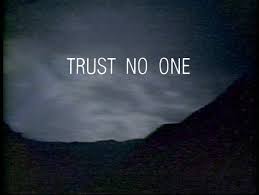I've written one of my essay prompts for the UC system, but the other is still pending... instead of writing a real response for the second essay, this is the only thing I've come up with so far, and I'd be an idiot to send it in.
Describe the world you come from — for example, your family, community or school — and tell us how your world has shaped your dreams and aspirations.
Aren't sweaty essays just awful?
This topic is incredibly stupid. You couldn't sound worse when asking about our surroundings and backgrounds than calling it "the world [we] come from". Aren't we all from the same world? You make it sound like we are all floating around on our own planets, watching each other apathetically across the expanding void.
And why would you ask about our "dreams and aspirations"? You're just bound to receive all kinds of sappy and affected essays from kids who really don't know what their plans are but feel they need to say they have them. Honestly, don't the admissions readers suffer enough? Are you trying to heighten suicide rates this quarter (or semester, as the case may be)? I don't think you want to know about the kid who wants to "heighten his already acute sense of interpersonal skills in order to reform ineffective world systems" or the psychology major who's "just so ready to go to the school and learn and help people!" or the idiot who tries to analyze the prompt and write something clever, ultimately off topic, and dangerous enough to piss a lot of people off.
After all, the UC system is a big deal. If you have that much power, who wants to be told that their essay prompts suck? Who would even send an essay like that? They'd be screaming, "don't accept me to any of your schools!" The officers would be annoyed and say, "this tells us nothing about his background and is completely off topic". But seriously, personal statement prompts are the worst. They're always doomed too fail. Goofy prompts like "tell us about the relationship between you and your arch-nemesis" beget goofy essays. And if you want some on-track, good essays (along with a dumpster-load of terrible ones); you write a prompt like the one I'm not following. And-- well, I've never seen a good personal statement prompt before, but I'm guessing if one was written, the universe would explode and be replaced with something more complex.
I suppose, no matter the prompt, no one can really reveal themselves completely through an essay. So, from a certain perspective, it doesn't matter what prompt is written. The reciprocation will be flawed and often terrible, regardless. It is the applicant's job to make do, defy probability and write something good, instead of wasting everyone's time and disregarding his duty.

